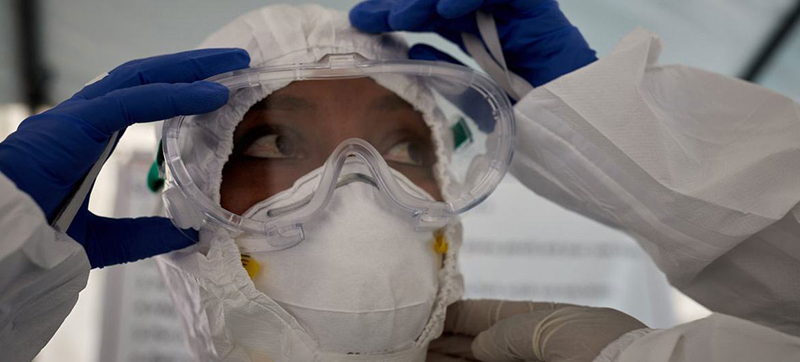 Pathogens
Pathogens
WHO convenes experts to identify new pathogens that could spark pandemics
New York: The World Health Organization (WHO) is working to compile an updated list of priority pathogens that can cause future outbreaks or pandemics, the UN agency announced on Monday.
WHO is convening over 300 scientists who will consider the evidence on over 25 virus families and bacteria, as well as “Disease X”, which indicates an unknown pathogen that could cause a serious international epidemic.
The process began on Friday and will guide global investment, and research and development (R&D), especially in vaccines, tests, and treatments.
Essential for quick response
The priority pathogens list was first published in 2017 and includes COVID-19, Ebola virus disease, Lassa fever, Middle East respiratory syndrome (MERS), Severe Acute Respiratory Syndrome (SARS), Rift Valley fever, Zika, and “Disease X”.
“Targeting priority pathogens and virus families for research and development of countermeasures is essential for a fast and effective epidemic and pandemic response”, said Dr. Michael Ryan, Executive Director of WHO’s Health Emergencies Programme.
“Without significant R&D investments prior to the COVID-19 pandemic, it would not have been possible to have safe and effective vaccines developed in record time”, he added.
Roadmap for research
The experts will recommend a list of priority pathogens that need further research and investment.
The process will include both scientific and public health criteria, as well as criteria related to socioeconomic impact, access, and equity.
R&D roadmaps will be developed for those pathogens identified as priority, laying out knowledge gaps and areas for research.
Desired specifications for vaccines, treatments and diagnostic tests will also be determined, where relevant.
Efforts will also be made to map, compile and facilitate clinical trials to develop these tools.
The revised list is expected to be published in early 2023.
Support Our Journalism
We cannot do without you.. your contribution supports unbiased journalism
IBNS is not driven by any ism- not wokeism, not racism, not skewed secularism, not hyper right-wing or left liberal ideals, nor by any hardline religious beliefs or hyper nationalism. We want to serve you good old objective news, as they are. We do not judge or preach. We let people decide for themselves. We only try to present factual and well-sourced news.







